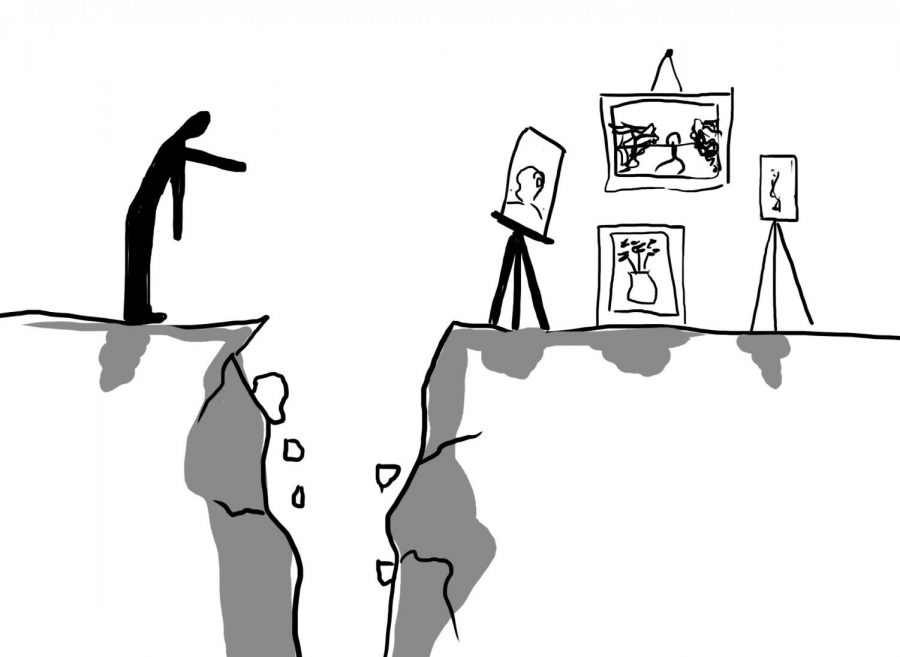Can the artist be separated from their art?
February 6, 2020
Michael Jackson was an incredible performer who made ingenious contributions to pop culture and the music industry, which gave him tremendous power. In the prime of his career he allegedly sexually abused kids who were devoted fans with ambitions of performing. Wade Robson, who accused Jackson of abuse, described him as an “otherworldly” figure even prior to meeting him. Today, Jackson is still revered by many fans who will acknowledge this reality but do not feel it is necessary to examine the relationship between his actions and his music.
When it comes to art, it is not ethically sound to support an artist after discovering the atrocities they are willing to partake in or endorse. The art produced represents a direct line from the artist to the feelings and beliefs which motivate their actions. Their art is a representation of their person; sexual assault, abuse and discrimination inherently poison the art with immorality against societal standards.
R. Kelly was also hugely influential, especially within the black community and in Chicago, but he abused his celebrity to mislead young girls into working with him. He gained their trust and made promises about their careers, then took advantage of their idolization of him and sexually abused them. In the past several years, he has been charged with 18 federal counts that include child sexual abuse/pornography, forced labor and kidnapping. Surprisingly, many people still endorse him. In fact, the reason his actions are readily excused is largely because of his influence in the black community; they are also excused by those who have trouble believing the accusers.
Another thing to consider is the type of transgression by the artist and the type of art they produce. It is just as important to reconsider acts or beliefs rooted in discrimination, such as in the cases of J.K. Rowling or Boy George. Recently, Rowling and George have both made comments against the trans community, which is a distinct controversy from sexual or domestic abuse. I do not believe in the separation of art and artist, but it’s difficult not to view Culture Club’s “Do You Really Want To Hurt Me” as a bop in light of George’s controversy.
It’s difficult to be morally consistent. I concede that I struggle to completely cut off artists like Rowling because of the impact she made on my life. Harry Potter formed my childhood. At the same time, I along with other Harry Potter fans, don’t see Rowling’s transphobic remarks lining up with the themes in her art. She is the creator and cannot be separated from her thoughts, feelings and philosophies. However, the themes of acceptance, courage and compassion present in the Harry Potter series make it inconceivable to many people that these contradictory messages could come from the same person.
In our society, we have placed an excusatory veil over certain individuals who are in positions of power. We would rather separate a creator’s discriminatory views from their work because it means so much to us. If the actions of an artist are not something you approve of in everyday life, there is no reason to allow a celebrity to get away with these actions simply because they have power. If you fundamentally disagree with something another person stands for or is willing to do, why would you ignore it?






